Economy
Cost Of Living Crisis: Nigeria, Others Risk Social Unrest – AfDB

The African Development Bank (AfDB) has warned that Nigeria, Ethiopia, Angola and Kenya risk social unrest owing to the rising prices of fuel and other commodities.
The AfDB gave the warning in its macroeconomic performance and outlook for 2024 wherein it projected the continent’s economy to grow higher than the 3.2 per cent recorded in 2023.
Nigerians, in some states, including Kano, Niger, Lagos and few others, had protested against the cost of living crisis in the country, which is largely blamed on the federal government’s policies of the petrol subsidy removal and floating of the naira.
The Sultan of Sokoto and chairman of the Northern Traditional Rulers Council, Muhammad Sa’ad Abubakar III, had on Wednesday at the 6th Executive Committee meeting of the Northern Traditional Rulers Council in Kaduna, warned that with millions of Nigerian youths left without jobs and food, the country was sitting on a keg of gunpowder.
The Emir of Kano, Alhaji Aminu Ado Bayero, had, earlier on Monday, said there was serious hardship in Nigeria, asking the First Lady, Senator Oluremi Tinubu, to convey the message of the teeming populace about the hunger in the land to the president.
The emir spoke when Mrs Tinubu visited Kano to officially open the Faculty of Law building at the Maryam Abacha American University, Kano named after her.
The Minister of Agriculture and Food Security, Abubakar Kyari, had on Wednesday assured Nigerians that the government would distribute the 42,000 metric tonnes of grains free of charge.
The Nigeria Labour Congress (NLC) had, on Friday, declared a two-day nationwide mass protest on February 27 and 28. The NLC president, Joe Ajaero, said the decision to protest was taken after the expiration of the 14-day ultimatum earlier issued to the government over the nationwide hardship.
The AfDB, at the weekend, warned that internal conflicts could arise from an increase in energy and commodity prices occasioned by currency depreciation or subsidy removal referencing Nigeria, Angola, Kenya and Ethiopia, where energy subsidies were removed.
It stated, “Internal conflicts and violence could also result from rising prices for fuel and other commodities due to weaker domestic currencies and reforms.
“For instance, the removal of fuel subsidies in Angola, Ethiopia, Kenya and Nigeria and the resulting social costs has led to social unrest driven by opposition to government policy.”
The bank also said the increase in geopolitical tensions in Eastern Europe and the Middle East, coupled with the El Nino phenomenon, could trigger supply chain disruptions, which could exacerbate energy and food inflation across the world with Africa more vulnerable to these shocks.
The AfDB further warned that regional conflicts and political instability occasioned by disruptions in constitutional governments could have deleterious economic costs with resources meant for development and social support channeled into security and defence.
It also cautioned that an unconstitutional takeover of the government might lead to sanctions, which have negative implications for the economy.
Quit if you’re overwhelmed, PDP govs tell Tinubu
Governors elected on the platform of the opposition Peoples Democratic Party (PDP) have advised President Bola Ahmed Tinubu and the All Progressives Congress (APC)-led federal government to quit if they cannot provide a sustainable solution to the problems plaguing the nation.
The PDP governors gave the advice in a statement at the weekend, signed by the forum’s director-general, HCID Maduabum, reminding the APC-led government of the need to be guided by the fact that it was the APC that sought power to solve the problems of Nigeria and not to “compound them, shift blame or grandstand and use propaganda to obfuscate or confuse issues.”
The governors noted that the hardship and suffering being faced by Nigerians had no tribal, religious or party colouration, stressing that “a hungry man is an angry man.”
The governors said while all the tiers of government had a role to play, the APC-led federal government had a greater role in mobilising Nigerians and all the organs and tiers of government for sustainable solutions, adding, “If it cannot do so or is unable to do so, it should graciously throw in the towel.”
They assured that as stakeholders in governance they would continue to work collaboratively with the president in finding lasting solutions to “a very difficult situation created or exacerbated by the APC since 2015.”
When contacted for a reaction to the PDP governors’ allegations, the Special Adviser to the President on Information and Strategy, Bayo Onanuga, promised to get back to one of our correspondents, but he did not do so as of the time of filing this story.
Economy
States face allocation cuts as agency demands N100bn monthly
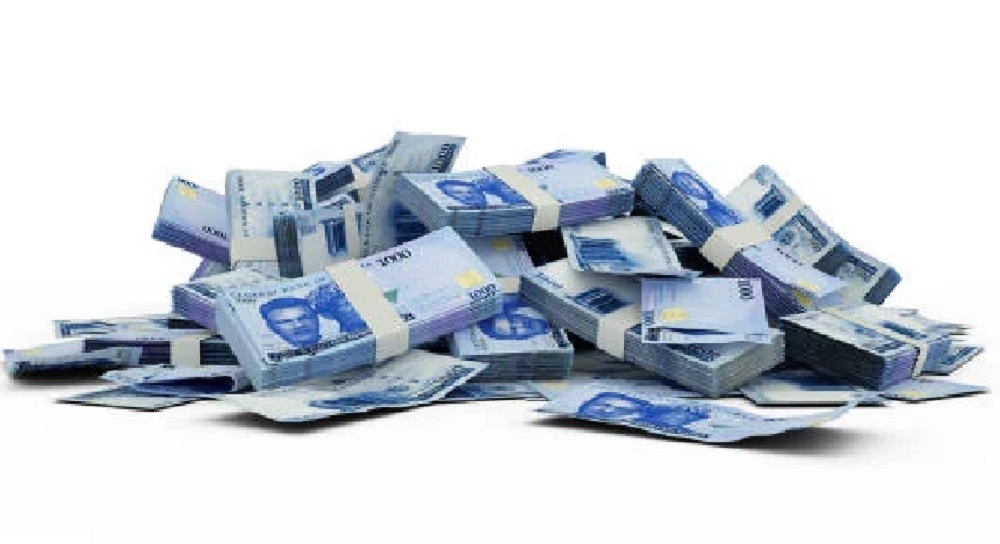
The monthly statutory allocations to state governments from the federation account may decline in the coming months following an official request by the Nigeria Sovereign Investment Authority to boost the nation’s residual funds with the support of N100bn monthly.
The request, which was presented by the Managing Director and Chief Executive Officer of NSIA, Aminu Umar-Sadiq, is aimed at unlocking large-scale investments to drive Nigeria’s economic growth.
He made the request at the March revenue-sharing meeting of the Federation Account Allocation Committee held between April 14 and 15, 2025. Our correspondent obtained a copy of his presentation during the meeting on Friday.
Umar-Sadiq appealed to the committee, which includes state commissioners of finance, to consider and approve the request, with funding proposed to commence from the March FAAC allocation.
The presentation was titled, “Activating Residual Funding for the Nigeria Sovereign Investment Authority – Unlocking Opportunities for Large-Scale Investments to Drive Nigeria’s Economic Growth.”
According to the document, the NSIA is requesting a structured monthly disbursement of N100bn from Residual Funds—revenues in the Federation Account beyond projected hydrocarbon income—to establish a Naira-based investible capital pool.
The move, the authority says, will enhance its capacity to finance critical domestic infrastructure projects.
The MD said, “The funding would position the authority as a leading sovereign wealth fund globally, promoting responsible and strategic investments for Nigeria’s economic development and enhancing its threefold mandate to build a savings base for the country, enhance the development of infrastructure, and provide stabilisation support.”
He explained that residual funds are a legitimate source of funds transferred to the authority, provided that the derivation portion of the revenue allocation formula shall not be included as part of this funding.
Economy
More Nigerians to experience poverty by 2027 – World Bank

The World Bank’s latest Africa’s Pulse report has projects a grim future for Nigeria, with poverty expected to rise by 3.6 percentage points by 2027.
Released during the IMF and World Bank Spring Meetings in Washington, DC, the report cites Nigeria’s reliance on oil, economic fragility, and governance challenges as key drivers.
It highlights the country’s structural economic weaknesses, dependence on oil revenues, and national fragility as key barriers to meaningful poverty reduction.
“Poverty in resource-rich, fragile countries, including large economies like Nigeria and the Democratic Republic of Congo, is projected to increase by 3.6 percentage points between 2022 and 2027,” the report stated.
Despite recent growth in Nigeria’s non-oil sector during the last quarter of 2024, the World Bank warns that this progress is unlikely to translate into widespread poverty alleviation due to ongoing fiscal and institutional challenges.
The report emphasizes that Sub-Saharan Africa remains the world’s poorest region, with an overwhelming 80% of the globe’s 695 million extreme poor residing there in 2024.
Within the region, half of the 560 million extremely poor people were located in just four countries, including Nigeria.
In stark contrast, South Asia accounted for 8% of the world’s extremely poor population, East Asia and the Pacific 2%, the Middle East and North Africa 5%, and Latin America and the Caribbean 3%.
The World Bank attributes the rising poverty in Nigeria and similar economies to weakening oil prices and fragile governance structures, noting: “This follows a well-established pattern whereby resource wealth combined with fragility or conflict is associated with the highest poverty rates, averaging 46% in 2024, which is 13 percentage points higher than in non-fragile, resource-rich countries.”
Meanwhile, non-resource-rich countries in Africa are experiencing stronger economic growth and faster poverty reduction, buoyed by high agricultural commodity prices and more resilient fiscal policies.
To reverse Nigeria’s downward poverty trend, the World Bank recommends reforms that prioritize inclusive economic growth and stronger public financial management.
It calls on the government to focus on “improving fiscal management and building a stronger fiscal contract with citizens to promote inclusive economic development and long-term poverty alleviation.”
Economy
SEE current exchange rate of the Dollar to Naira

What Is the Dollar to Naira Exchange Rate at the Black Market (Aboki FX)?
Here is the Dollar to Naira exchange rate at the parallel market, popularly known as the black market (Aboki fx), for Tuesday, April 23, 2025.
You can exchange your dollars for naira at the following rates:
Black Market Exchange Rate (Lagos – April 23, 2025):
According to sources at the Bureau De Change (BDC), the exchange rate at the Lagos parallel market saw traders buying at ₦1610 and selling at ₦1620 per US dollar.
It’s important to note that the Central Bank of Nigeria (CBN) does not recognize the black market. The CBN advises individuals seeking foreign exchange transactions to do so through their banks.
Dollar to Naira Exchange Rates
Market Type Buying Rate Selling Rate
Black Market ₦1610 ₦1620
CBN Official Rate ₦1591 (Low) ₦1606 (High)
Note: Forex rates vary across dealers and regions, and actual rates may differ from those listed.
Meanwhile, the Nigeria Customs Service (NCS) has announced the seizure of 298 smuggled items worth ₦7.6 billion between January and March 2025. The NCS also disclosed that it generated a total revenue of ₦1.75 trillion in the first quarter of the year.
-
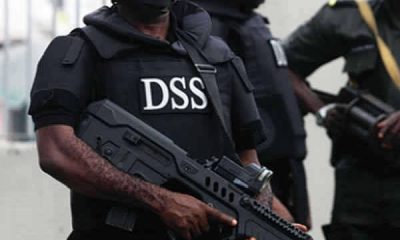
 News22 hours ago
News22 hours agoDSS arrests Army major for planning unrest in Delta
-

 News23 hours ago
News23 hours agoFCT minister, Wike announces new appointments
-
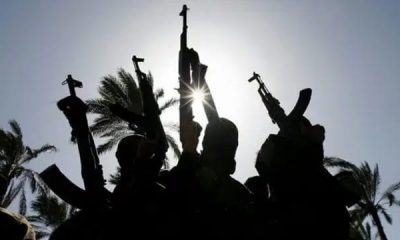
 News14 hours ago
News14 hours agoGunmen abduct two senior LG workers, three others
-

 Politics23 hours ago
Politics23 hours agoSee list of APC Delta stakeholders holding meeting in Abuja on power sharing formula with Oborevwori
-
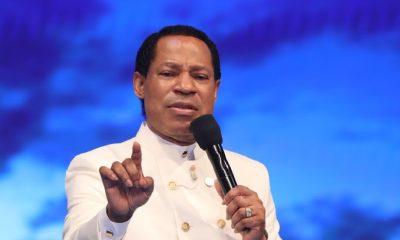
 News23 hours ago
News23 hours agoCOVID-19 Vaccine Killed Pope Francis, says Pastor Oyakhilome
-
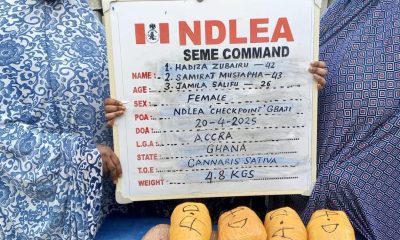
 News16 hours ago
News16 hours agoNDLEA storms Lagos hotel, recovers N1.042billion illicit drug consignments(Photos)
-

 News16 hours ago
News16 hours agoArmy Chief condemns beating, harassing civilians in military uniform says, it’s wrong
-
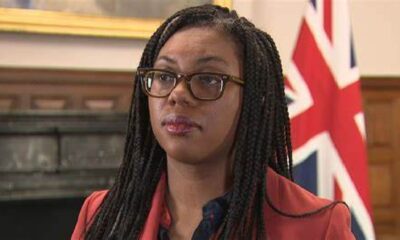
 News23 hours ago
News23 hours agoUK Tories mull replacing Badenoch as party leader after poor ratings






